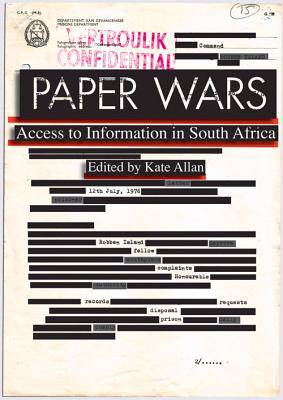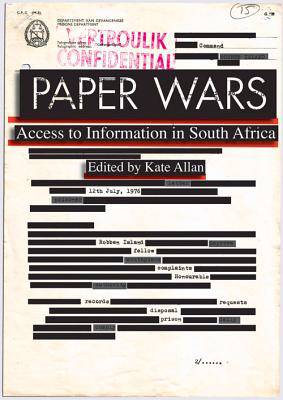
- Afhalen na 1 uur in een winkel met voorraad
- Gratis thuislevering in België vanaf € 30
- Ruim aanbod met 7 miljoen producten
- Afhalen na 1 uur in een winkel met voorraad
- Gratis thuislevering in België vanaf € 30
- Ruim aanbod met 7 miljoen producten
Omschrijving
At the very start of South Africa's constitutional democracy, openness and transparency had a special place. Reacting against the secrecy of apartheid, the veils would be lifted in a newly open society. And indeed South Africa's access to information law--the Promotion of Access to Information Act, a direct result of the constitutional negotiations--is without parallel in the world.
But bureaucracies and their cultures do not change easily. Habits of secrecy die hard and perhaps hardest where institutional capacity is low and organizational resources are scarce. Working against such obstacles, a few valiant organi-zations including the South African History Archive (SAHA) have been working to push back the entrenched modes of secrecy and instantiate the realm of open democracy. This book, edited by Kate Allan, tells and reflects upon that story.
Drawing on the experience of SAHA, the chapters of Paper Wars will be the place to start for any serious scholar or dedicated activist seeking to understand the experience and place of South Africa in the global diffusion of freedom of information regimes. Despite having the law on their side, this book details the difficulties the information activists and requesters have encountered as they have attempted to put South Africa's constitutional right of access to information into practice. Containing essays and case studies, the volume will stand as the record of the initial implementation (or lack thereof) of South Africa's right to know law.
Specificaties
Betrokkenen
- Auteur(s):
- Uitgeverij:
Inhoud
- Aantal bladzijden:
- 304
- Taal:
- Engels
Eigenschappen
- Productcode (EAN):
- 9781868144914
- Verschijningsdatum:
- 1/08/2009
- Uitvoering:
- Paperback
- Formaat:
- Trade paperback (VS)
- Afmetingen:
- 178 mm x 229 mm
- Gewicht:
- 539 g

Alleen bij Standaard Boekhandel
Beoordelingen
We publiceren alleen reviews die voldoen aan de voorwaarden voor reviews. Bekijk onze voorwaarden voor reviews.











